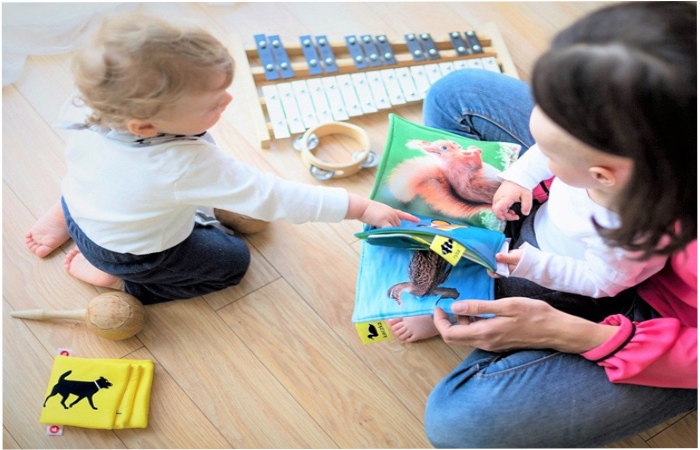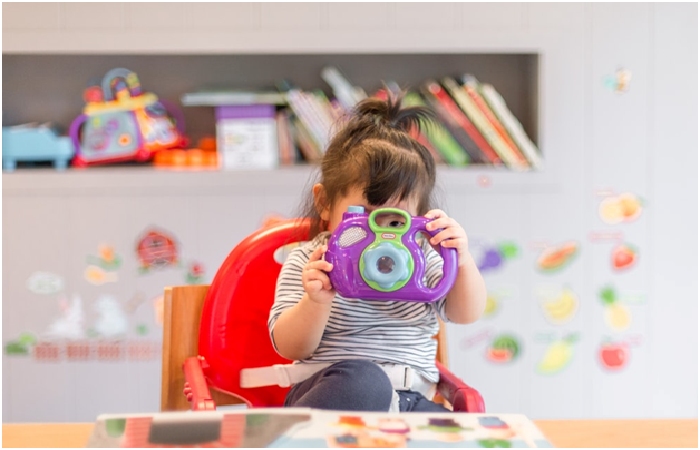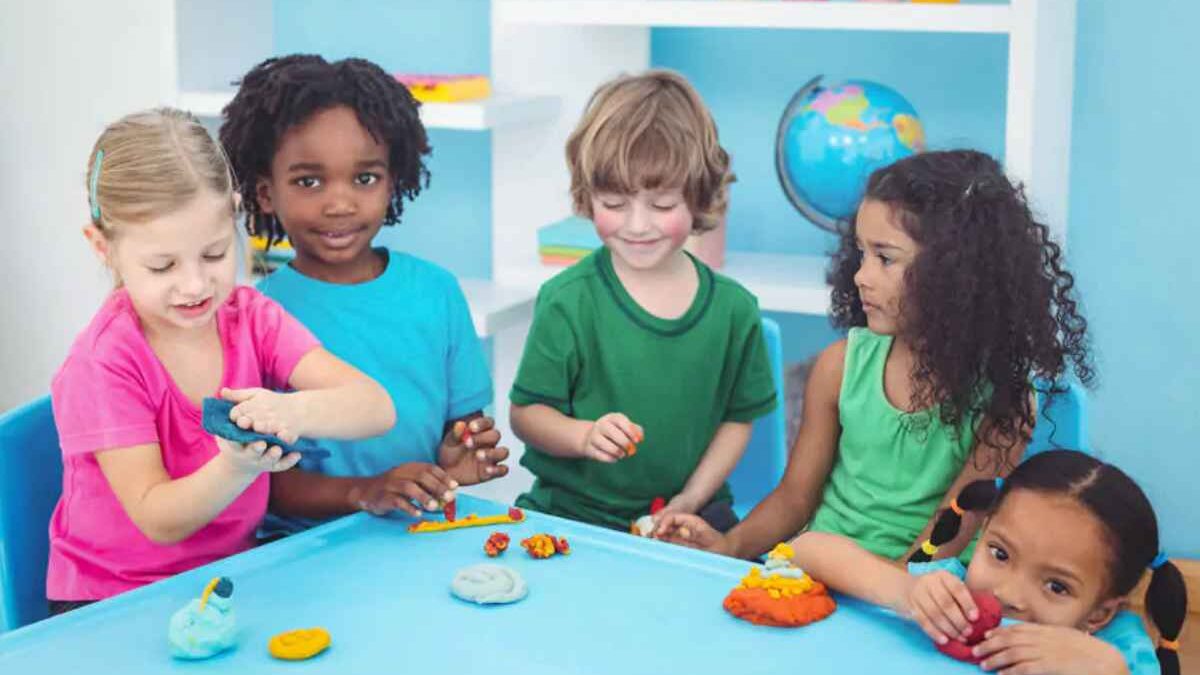How to support preschoolers’ home learning in the age of social isolation? – During the coronavirus crisis, parents whose children often attend preschools are now managing their young children’s enrichment and education at home. We know that most parents cannot imitate a full day of preschool, along with all their other tasks. But here are some strategies and principles to help you take care of your 3-5-year-old student or preschoolers at home anytime you have available.
Table of Contents
Learning and Development Goals Preschoolers
The preschool years lay the foundation for future school learning. Goals during this time period include:
- Fine motor skills: Safely cutting with scissors, grasping with pencil, coloring, forming letters/numbers
- Self-regulation: listening carefully for more extended periods of time, sitting for long periods of time
- Regulation of emotions: healthy separation, ability to calm down, tolerance for frustration
- Social development: empathy, taking turns, sharing, conflict resolution
- Early academic skills: letter identification, letter and sound associations, number identification, counting, basics (shapes, colors, textures), basic rules of print writing conventions
- Activities of daily living/independence: putting on and taking off the sweater, handling personal belongings
- Creativity and imaginary play: using an object in novel ways, sharing imagination
- Self-confidence as a learner
How Children 3 to 5 Years Old Learn?
During this social isolation period, learning takes place almost easily as preschoolers interact with sensitive caregivers, explore the environment around them, and play. The human brain was built for learning, and children at this age strengthen neural connections as they use them.
The experiences and activities you provide your child build their brain and increase their learning ability and efficiency. Present your preschooler with a language-rich environment, a variety of rich sensory stimulation, and allow them hands-on opportunities to explore essential concepts (such as shape, color, and texture) and the environment.
What is the Role of Parents?

Although preschoolers can play independently for a short time, parents will need to organize their children’s day, schedule structured tasks, help with transitions between activities, and provide necessary scaffolding and encouragement.
- Create structure. Like adults, children need inevitability in their days. In addition, consistency and routine help children to develop and learn. Through repetitive routines (e.g., bath time), children learn about sequence (what comes first, next, last), build vocabulary and conceptual knowledge (e.g., wet, slippery, faucet, drain ) and develop autonomy (getting their own towel or cleaning bath toys on their own).
- Check with teachers. If your child’s preschool teacher is available, it may help schedule time to check in with him and discuss suggestions for specific activities. If your student receives additional services, try reaching out to the providers to see if they can suggest ways you can help continue treatment and keep gains at home.
- Talk to your child. Almost any activity a preschooler participates in provides an opportunity to speak, introduce new vocabulary, shapes, colors, sizes, and numbers. The “serve and return” interactions, or the verbal and non-verbal reciprocal exchange between a child and their caregiver, also facilitate attachment and a sense of self.
- Current projects. Projects, which may include coloring, building, sorting, or sensory play (such as a water table or sandbox), are great opportunities for your child to experience their full attention, which helps reinforce the sense that he is important. Commenting, reflecting, and complimenting your child’s work gives them a sense of accomplishment and self-worth, and praising your child’s effort helps develop determination.
- Build unstructured games. Independent play is essential for fostering creativity, problem-solving, and autonomy. Offer your preschool student various art supplies (crayons, markers, chalk, finger paints), building supplies (blocks, Magna-Tiles, Legos), or pretend play accessories and let them build their own craft or game. If the children run out of ideas or materials, offer some new material and see if they can switch themselves to a new way of playing.
How to structure the day?
While it’s not necessary (or realistic) during this COVID-19 crisis to create a strict and regulated schedule, having a general “schedule” for the day will help relieve stress for you and help your child feel safe. Here are some tips for making a schedule:
- Wake up at a similar time, change from night clothes to “real clothes” (whatever that means to you), and eat breakfast at a daily time
- Alternate dissimilar types of play throughout the day
- Incorporate normal breaks into the schedule, which should include opportunities to exercise and play freely
- Eat dinner mutually as a family and use that time as an opportunity to talk about the day and solve problems collectively.
Types of Play that Encourage Learning in Preschoolers

When considering how to fill up your child’s day, it’s helpful to consider the different types of play that help support different areas of their development:
- Constructive play: blocks, Magna-Tiles, Legos, fort building, coloring, and crafts.
- Physical play: running, jumping, hiding and searching, Simon says, musical chairs
- Pretend play: dress up, dolls, kitchen, action figures, modified “guess, guess” (for example, have your child act like an animal and presume what they are)
- Sensory play: water play, sand table, finger painting, putty (playdough), baking bread
- Music game: listen to music and children’s songs, play musical instruments, sing
- Outdoor play: walk in nature, pick flowers, identify objects or flowers when they come out
- Reading time: Every parent must and should encourage their children to read books daily. Reading books daily can improve your child’s IQ, Social skills, and language proficiency. There are some books that many educators approve of, for example, the books As seen on coolthingschicago.com.
Screen time
We recommend restrictive screen time (the World Health Organization suggests no more than one hour for children ages 2-5, ideally while watching with a caregiver). During the social isolation or COVID-19 crisis, screen time can be incorporated into an impartial activity diet. It should be used strategically, such as when you need your child to receive less attention (such as cooking dinner, work, or helping your sibling with schoolwork). For a list of free, accessible, online resources, download our Child Mind Institute’s ‘Remote Learning Resources for Families’ guide, including educational programming, suggestions for movement breaks, museum visits, book reading times, and plus.
How to Make Independence in Preschoolers?

During the preschool years, kids begin to develop their sense of independence truly. This is immensely important in building confidence and a sense of self. Ways you can foster independence while at home in the COVID-19 crisis include:
- Structure the day. Like adults, when children can look forward to their day, they are better equipped to take on responsibilities.
- Start small. Before going out, for example, your child can put on his own hat and take his shoes out of the closet.
- Let your child choose. Involve them in options, like what to wear. This does not mean that they have free rein. Please provide 2-3 options and then praise their great ability to make a decision!
- Let your child help you. Children adore to help! When you allow your child to assist, even if it takes him longer to get things done, you build his confidence and allow him to learn something new.
- Let your child solve problems. Let your children try difficult things and solve (small) troubles on their own. Wait until they ask for help or assistance just to take them to the next step on a task. You can acknowledge that something is difficult and let them know that you are proud by offering praise for trying something on your own or for the first time.
- Assign homework to your child. Simple tasks like picking up toys or putting clothes in the basket allow your child to have reasonable responsibility. Those tasks also help maintain routine and structure throughout the day.
Conclusion:
In the above piece of writing, we have discussed some essential points regarding supporting preschoolers’ home learning in the age of social isolation. We hope the above article finds you informative, if you find the above article helpful, let us know.

